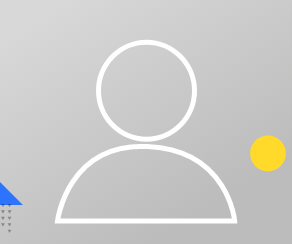Timothy Paschkewitz, Ph.D.

Timothy Paschkewitz
Electroanalytical Sales Scientist
Pine Research Instrumentation
B.S., Chemistry, University of Wisconsin-Whitewater
Ph.D., Chemistry, University of Iowa, Iowa City
Timothy was pursuing his Ph.D. in electrochemistry when he made his first real industry connection. The general manager of the Pine Research Instrumentation, an electrochemical instrumentation manufacturer, visited Paschkewitz’s laboratory to demonstrate new products. About six months before graduation, a position at the company became available.
“My resume and cover letter stood out because I could reference previous communication with the general manager,” Paschkewitz says. “From there, I secured strong references, learned as much about their company and product line as possible, successfully interviewed for the position, and started two weeks after graduation.”
Paschkewitz has been an ACS member since 2003, and especially appreciates the easy access to an array of electronic resources. Today, he is an electroanalytical sales scientist at Pine Research Instrumentation. This is how he works.
Do not let perfect be the enemy of good enough. Being someone who takes a great deal of pride in their work, I can impede progress by holding out until something is perfect. Sometimes, good enough has to be acceptable.
Typical day on the job:
My position includes up to 50% travel. When traveling, I am either attending research conferences as an exhibitor, where I set up a display booth and market products to potential and existing customers, or visiting companies and academic labs of existing and prospective users.
When not traveling, my roles in the office are many. I am always available to answer phones, enter orders, and take technical support calls and emails (15% of my time). I spend much of my day performing customer follow-up by phone or email, either from a sales/marketing perspective or a technical/service perspective (40%). Many hours per week are spent on marketing and sales activities (issuing quotes, following up on quotes, maintenance of our commercial website, graphical/artistic development of product photos, data mining to find prospective customers, etc. (20%). I am also charged with significant technical writing—product guides, technical service bulletins, teaching laboratories, and general inter-office documents (25%).
I have two scheduled meetings weekly—a general staff meeting and a more specific sales meeting, together lasting on average 3 hours per week. I am constantly thinking about new products and teaching labs, ways to market them, and what resources we as a company need to have available for our customers. I do not manage others in my role. I do occasionally test new products and laboratory exercises, when needed.
Work environment:
I have my own office within our building. When in the office, I connect my laptop to a secondary display. Otherwise, my office is used primarily to organize my files and books used for my job. When I need to work collaboratively with others, we work in a conference room. We all share a laboratory facility that is used for product and laboratory development as needed.
Work schedule:
I am a salaried employee, exempt from overtime (based on 40 hours/week). When in the office, I am expected to be in the office at least 8 hours per day, Monday through Friday. On average, I work 45 hours/week when in the office. The environment is rather relaxed and family-like. Everyone is always working together on the same team, with individual expectations put on the appropriate person to achieve shared goals. When I am traveling, I typically work 60-70 hours per week, including weekends.
Tools you can’t live without:
I cannot live without my laptop computer. It is absolutely essential to do my job. Further, as an instrumentation company, I cannot do my job without access to our line of instruments (potentiostats, rotators). Also, while traveling, I depend heavily on a smart phone for navigation, finding buildings on campus, communicating back with the office, quick and easy internet access, etc.
Best productivity trick:
Communication. I find it critically important to always communicate where I am at with a given task or goal and learn where others are at as well. Gaps in coverage or overlapping efforts do not contribute to high level productivity, so open, direct, and frequent communication (in person, by email, or on the phone) helps to prevent these gaps or overlap from slowing down progressive action.
Best career advice you’ve received:
"Do not let perfect be the enemy of good enough." Being someone who takes a great deal of pride in their work, I can impede progress by holding out until something is perfect. Sometimes, good enough has to be acceptable. I continue to work on implementing the phrase “good enough” into my vocabulary.
Skills or talents that make you a good fit for your job:
I am a very socially-adept chemist. I communicate very effectively with people and take genuine interest in their research and needs. I am approachable and welcome conversation.
Essential habit you wish you’d started earlier:
In industry it is essential to constantly check in with your supervisors and communicate progress on all areas of your role. It is quite the opposite in graduate school, where you are taught and encouraged to be as independent as possible.
Favorite ACS resource:
As a graduate student, my favorite resources were the ACS journals. Now that I have transitioned into an industrial role, one where I regularly review who is presenting at conferences, I find the ACS website most helpful especially for the way they organize conference programs.

